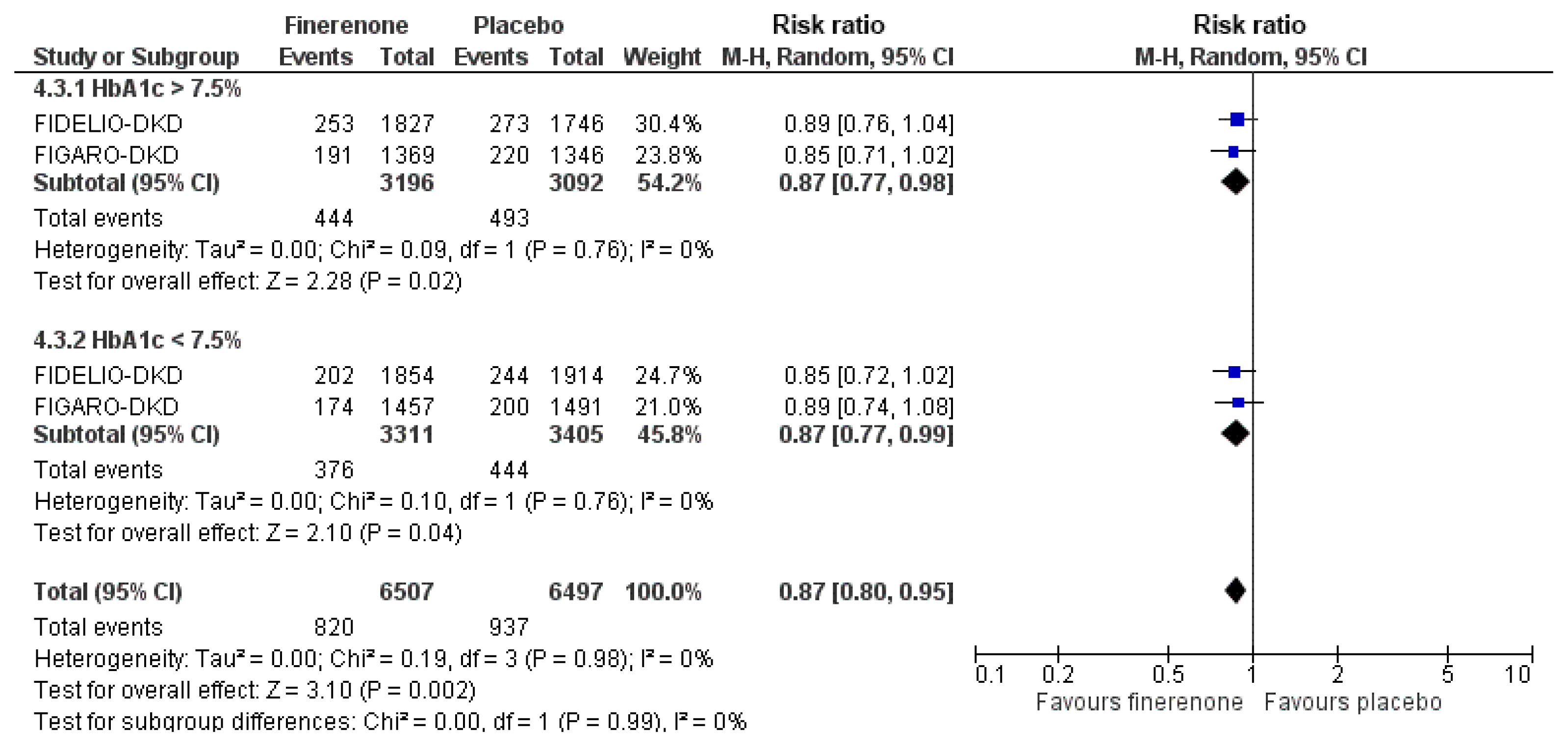Search
- Page Path
- HOME > Search
Brief Report
- Diabetes, Obesity and Metabolism
- Cardiovascular Outcomes with Finerenone According to Glycemic Status at Baseline and Prior Treatment with Newer Antidiabetics among Patients with Type 2 Diabetes Mellitus
- Dimitrios Patoulias, Christodoulos Papadopoulos, Asterios Karagiannis, Vassilios Vassilikos, Michael Doumas
- Endocrinol Metab. 2022;37(1):170-174. Published online February 9, 2022
- DOI: https://doi.org/10.3803/EnM.2021.1296

- 3,959 View
- 204 Download
- 2 Web of Science
- 2 Crossref
-
 Abstract
Abstract
 PDF
PDF Supplementary Material
Supplementary Material PubReader
PubReader  ePub
ePub - Type 2 diabetes mellitus (T2DM) and cardiovascular disease are closely interconnected. We sought to determine the cardioprotective action of finerenone according to prior treatment with newer antidiabetics and glycemic status. We searched PubMed and Cochrane Library from inception to October 1, 2021 for randomized controlled trials (RCTs) assessing the effect of finerenone on major adverse cardiovascular outcomes in patients with T2DM. We set the primary endpoint as major adverse cardiovascular events (MACE), defined as the composite of death from cardiovascular causes, nonfatal myocardial infarction, nonfatal stroke, or hospitalization for heart failure. We finally included two RCTs in our quantitative synthesis. Compared to placebo, finerenone induced a 23% risk reduction for the composite cardiovascular endpoint, regardless of prior glycemia. We also showed that finerenone provided significant cardiovascular benefit for obese patients with T2DM compared to placebo, although this benefit was diminished for subjects with a body mass index lower than 30 kg/m2. Finally, the combination of finerenone with sodium-glucose co-transporter-2 inhibitors or glucagon-like peptide-1 receptor agonists did not produce a significant risk reduction for MACE. We conclude that finerenone provides significant cardiovascular benefits for patients with T2DM, especially for those who are obese, while glycemic status or treatment with newer antidiabetics at baseline does not affect the observed cardioprotective action.
-
Citations
Citations to this article as recorded by- Finerenone protects against progression of kidney and cardiovascular damage in a model of type 1 diabetes through modulation of proinflammatory and osteogenic factors
M. Sanz-Gómez, F.J. Manzano-Lista, E. Vega-Martín, D. González-Moreno, M. Alcalá, M. Gil-Ortega, B. Somoza, C. Pizzamiglio, L.M. Ruilope, I. Aránguez, P. Kolkhof, R. Kreutz, M.S. Fernández-Alfonso
Biomedicine & Pharmacotherapy.2023; 168: 115661. CrossRef - Research Progress in Finerenone in Cardiovascular Diseases
Sun Xue, Dong Yanghong, Gu Jiaxin, Liu Wenxiu, Liu Yue
Cardiovascular Innovations and Applications.2023;[Epub] CrossRef
- Finerenone protects against progression of kidney and cardiovascular damage in a model of type 1 diabetes through modulation of proinflammatory and osteogenic factors


 KES
KES

 First
First Prev
Prev



